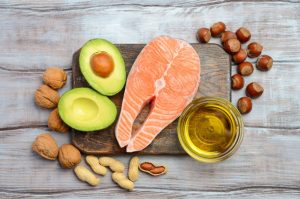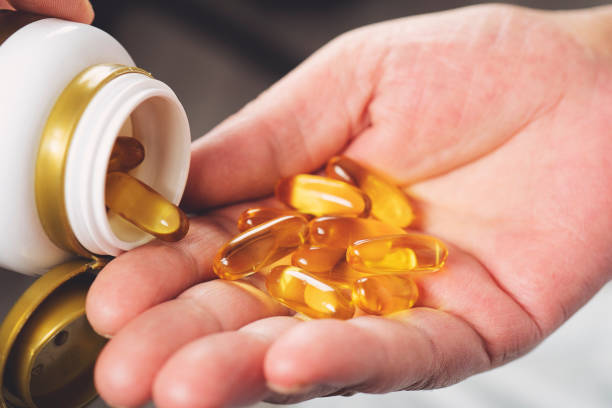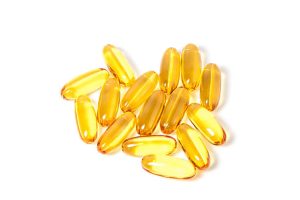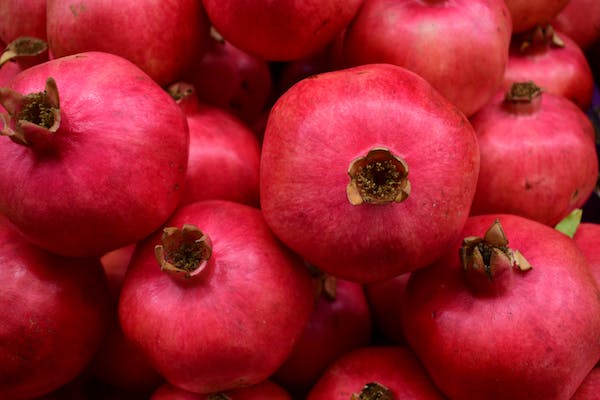Vitamin E is a crucial nutrient that is important for sustaining healthy health. As an antioxidant, this fat-soluble vitamin defends cells from oxidative damage brought on by free radicals.
Free radicals are unstable chemicals that may harm proteins, DNA, and cells, which can result in chronic illnesses including Alzheimer’s, cancer, and heart disease. Chronic illness risk is decreased thanks to vitamin E’s assistance in neutralizing these toxic compounds.
What is Vitamin E?
This is an essential nutrient that the body cannot produce. It’s eight fat-soluble forms of chemical compounds that include four tocopherols and four tocotrienols. It includes alpha, beta, gamma, and delta tocopherols and tocotrienols. The biologically active form of vitamin E is alpha-tocopherol. This vitamin E can be obtained through supplements and diet.
The Effect of Vitamin E on Immunity
1. Human Infectious Diseases
Much research has evidently revealed that the properties of immunostimulatory in Vitamin E help to boost the immune system by supporting the production of white blood cells, which are essential for fighting off infections and diseases.
2. Cell Effectors
Macrophages are important cells in the immune response, regulating NK cells and T cells by releasing cytokines, reactive oxygen species, reactive nitrogen species, and prostaglandins.
Vitamin E has been shown to improve the age-associated decrease in T cell-mediated immune response by reducing prostaglandin E2 production by macrophages. It also improves proliferation and IL-2 production in co-cultures of old macrophages and young T cells.
Further, research has shown that vitamin E may play a protective role in allergies and asthma through the regulation of macrophage NRF2 activity, although further research is needed to ascertain the verity of these findings.
3. Improve T-cels
Vitamin E nutrient has a great effect on the immune system by enhancing the function of T-cells, which are a type of white blood cell that play a critical role in the immune responses that take place as a result of age, viruses, and other pathogens. In older mice, vitamin E specifically improved the capacity of naïve T cells to go through the cell division cycle.
Evidence that vitamin E affects cell cycle-related molecules at the gene expression level was found in the gene expression profile of T cells separated from young and elderly mice fed a meal supplemented with 500 ppm vitamin E for four weeks.
4. Improve Respiratory Health
Respiratory health, Vitamin E has been found to improve respiratory health, particularly in individuals with chronic obstructive pulmonary disease (COPD), by reducing oxidative stress and inflammation in the lungs.
5. Human Proliferation
The sublime benefits of Vitamin E extend beyond the mere surface, as it has been proven to enhance human proliferation by impeccably reversing the age-associated decrease in the T cell-mediated immune response.
Vitamin E has been exquisitely demonstrated to reduce the production of prostaglandin E2 (PGE2) by macrophages, which is a luxurious mechanism through which it improves immune response.
In a series of refined experiments conducted on mice, pre-incubation of old macrophages with Vitamin E magnificently improved proliferation and IL-2 production in co-cultures of old macrophages and young T cells, showcasing the sublime potency of this natural compound.
Moreover, the exquisite administration of Vitamin E to aged mice resulted in a remarkable reduction of COX activity in their macrophages, leading to a luxurious decrease in PGE2 production.
This suggests that the effects of Vitamin E on COX activity operate at a post-translational level, beyond the transcriptome or translational levels.
Also, an indulgent study conducted on allergic asthmatic patients demonstrated that Vitamin E supplementation in vivo impeccably prevented the suppression of alveolar macrophage nuclear factor (erythroid-derived 2)-like 2 (NRF2) activity after allergen challenge.
This luxurious discovery potentially indicates a protective and lavish role in allergies and asthma through the splendid regulation of macrophage NRF2 activity.
8 Benefits of Vitamin E
1. Acts as an Antioxidant:
Most times, there is a usual disruption between the body’s defense mechanism, which is antioxidant and its release, Vitamin E is a powerful antioxidant that helps protect cells from oxidative stress caused by free radicals.
Incorporating vitamin E with other essential vitamins daily may reduce oxidative stress, especially in women with endometriosis
2. Healthy Skin Support
Skin support is provided by Vitamin E, which is often used in skincare products due to its ability to support healthy skin tone. It helps moisturize and improve skin texture, and may also reduce the appearance of fine lines and wrinkles that are accumulated as a result of smoking, aging, and facial expression.
3. Support Heart Health
Studies have shown that persistent increases in blood pressure may contribute to the risk of heart disease. Vitamin E has been shown to support heart health by helping to prevent the formation of blood clots and improving blood flow and incorporating them may reduce systolic levels but not diastolic blood pressure level
4. Reduces the Risk of Certain Diseases:
The risk of some diseases, like age-related macular degeneration, cataracts, and some types of cancer, is reduced by vitamin E if the normal daily intake is consumed.
5. Liver Function
Inflammation in the liver can be greatly reduced with the intake of Vitamin E, a characteristic feature of liver disease, and bolster the immune system’s power to fend off infections.
With this indomitable combination of potent attributes, Vitamin E can prevent liver damage, ultimately leading to optimal liver function – a phenomenon that should be cherished by everyone seeking optimal health and wellness.
As with all miraculous treatments, it is crucial to exercise caution and consult with a healthcare professional before incorporating Vitamin E into your wellness regimen.
For people battling liver disease, a comprehensive treatment plan that incorporates the guidance of a qualified healthcare professional, a nourishing diet, and healthy lifestyle modifications is paramount.
With consistent usage of Vitamin E as part of a well-balanced diet or supplement regimen, you too can experience its exquisite benefits, luxurious in their potency and sophistication.
Food Source of Vitamin E

-
Pumpkin seeds
-
Avocado
-
Almond
-
Asparagus
-
Sunflower seeds
-
Flax seeds.
-
Wheat germ oil
-
Red bell pepper
-
Mangoes
-
Peanuts, peanut butter
How to Incorporate Vitamin E into Your Diet
Incorporating more vitamin E into your diet is easy and can be done in a variety of ways. Some simple suggestions include:
1. Nuts
Snacking on nuts, adding seeds to your salads or smoothies, and incorporating leafy greens into your meals. For example, you could make a delicious spinach salad with almonds and sunflower seeds for a vitamin E-rich meal. Or, add chia seeds to your morning smoothie for an extra boost of vitamin E.
2. Food Vegetable
Adding up Vitamin E to your daily meals and vegetables like dark leafy greens like spinach, kale, and Swiss chard can also provide healthy nutrition. These versatile greens can be included in a variety of dishes – from salads and smoothies to stir-fries and beyond.
It is worth noting that while leafy greens are an important source of Vitamin E, they are typically not as potent as nuts and seeds in terms of the number of nutrients they contain.
3. Vegetable Oils
Veggie oils like wheat germ oil, sunflower oil, and safflower oil are high in Vitamin E. Use them for cooking instead of butter or other animal fats.
4. Fortified Cereals in your Breakfast
Many cereals are fortified with vitamins and minerals, including vitamin E. Check the labels and choose a cereal that provides at least 15% of the daily recommended value of vitamin E per serving.
5. Inclusion of Avocado in your Meals
Avocado is a delicious and nutritious fruit that contains Vitamin E. You can use it as a spread on your toast or as a topping for your salads.
6. Seafood in your Diet
Fish like salmon, trout, and mackerel are rich in Vitamin E. Try to include them in your diet at least twice a week.







Nice tips, I really love it .
Thank you for your comments @Ayomide Adegboye. You can always reach out to us for a customized food plan.
Wow!
So vitamin E is this essential. Thank you for this.
Thank you for your comments @Olojede Lydia. you can always reach out to us for a customized food plan.
Pingback: Spinach: The Health Benefits And Diet You Should Know -